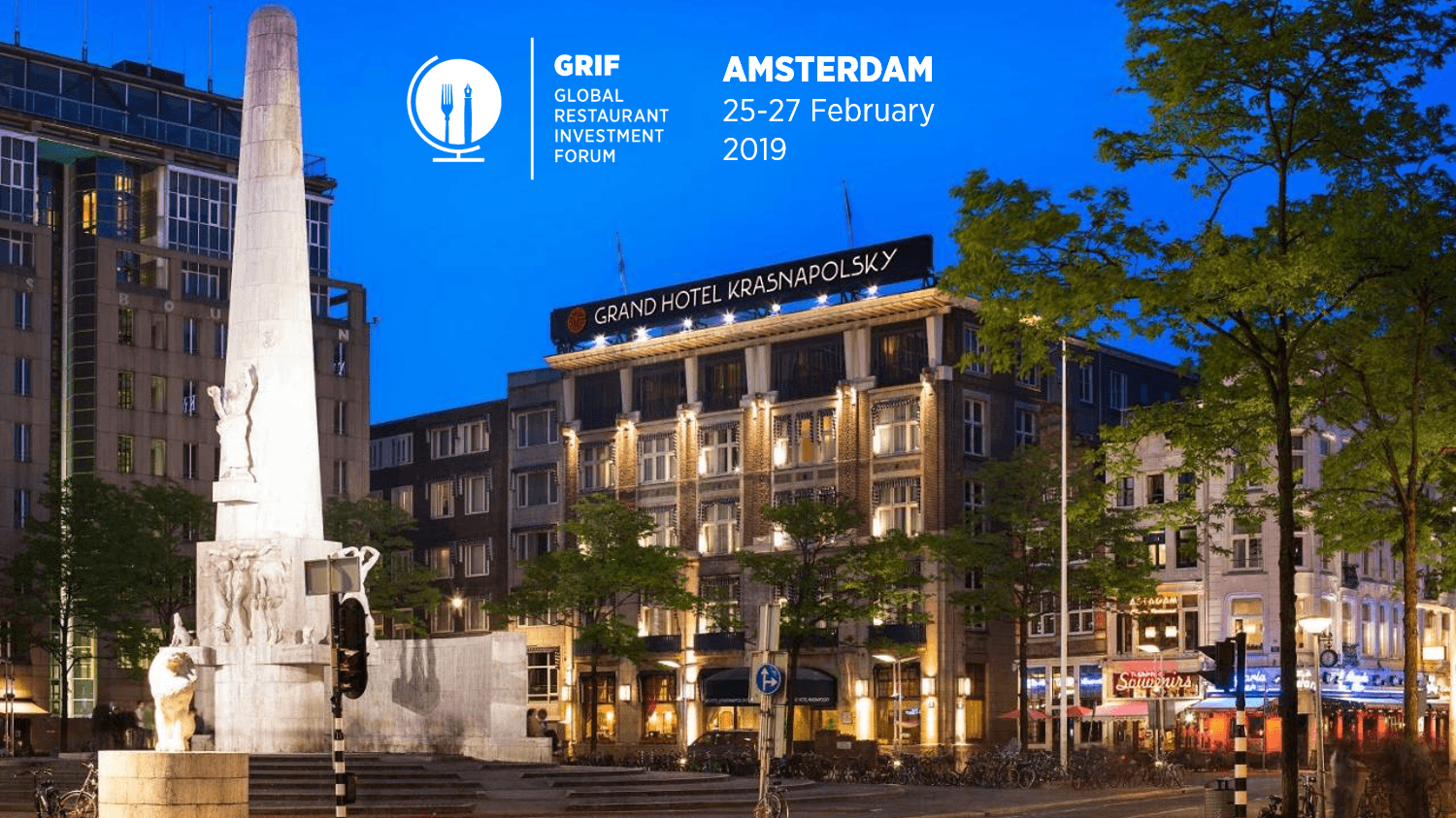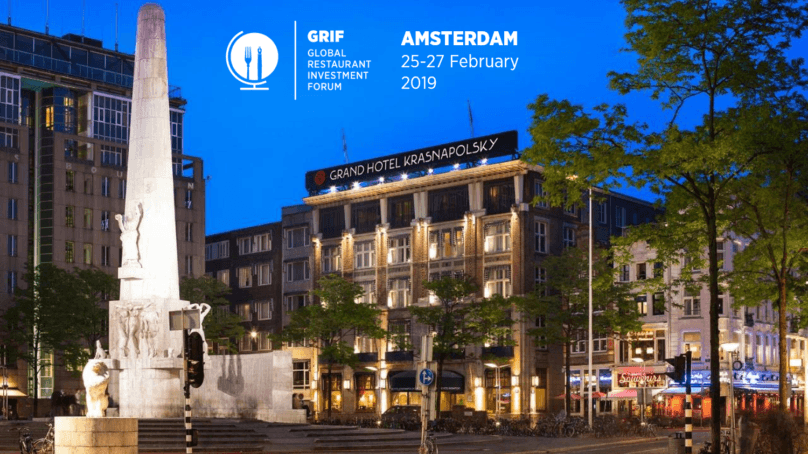
GRIF Amsterdam
How can we successfully foster gastronomic talent in the global F&B industry?
This is one of the key questions that will be addressed at the 2019 Global Restaurant Investment Forum (GRIF), taking place from 25-27 February at the NH Collection Grand Hotel Krasnapolsky in Amsterdam.
The sixth edition of GRIF, hosted by NH Hotel Group, starts today and brings together over 350 investors, owners, franchisors and hospitality leaders in Amsterdam. The event is themed around the three pillars of Evolution, Disruption and Invention and features a stellar line-up of close to 90 international speakers from the world’s leading restaurant groups, F&B concepts, investment companies, consultancies, global trend-watchers and analysts.
Ahead of the conference, Jennifer Pettinger-Haines – Co-Founder of GRIF and Managing Director Middle East for Bench Events, spoke with panelists Michael Ellis – Chief Culinary officer at Jumeirah Hotels and Resorts, Maarten Markus – Managing Director Northern Europe, NH Hotel Group and Chris Naylor – Executive Chef of Restaurant Vermeer (1* Michelin), NH Collection Amsterdam Barbizon Palace, who will be discussing new models for fostering gastronomic talent on the second day of GRIF.
When asked what the biggest challenges are in the restaurant industry in 2019 and beyond, Michael Ellis said: “I think the number one challenge remains figuring out what guests want to eat, what kind of environment they want to be in, and how much they are willing to pay for it. It’s easy to say but not easy to do.”
Maarten Markus agreed and said that he sees a lot of focus on the guest experience and the development of unique concepts that are tailored to unique dining experiences. To achieve this, there is a need to hire talented culinary staff: “Chefs and hosts are artists that create the gastronomy experience and therefore restaurants and hotels need to invest in good people.”
Chris Naylor also highlighted the need to hire and nurture good talent: “Personnel shortage will continue to be a significant challenge. I’m always on the look-out for talented and motivated waiters and waitresses that are able to provide extraordinary service and to complete the star dining experience here at Vermeer.”
Looking at the growing need for talented staff, Pettinger-Haines asked the panel what the key ingredients are to foster young talent in the industry.
“One of the most important things for a young cook today, is to have a mentor. Mastering cooking techniques takes time and instruction to learn and a good mentor is very important. Secondly, we need to make the kitchen an attractive environment for all, regardless of gender or background, this is the key to making our industry attractive for young talented people,” Ellis commented.
Naylor agrees that providing a good working environment is key: “I give my team members opportunities and I trust them fully. In my kitchen, everything is up for discussion and anyone can ask questions. I value a good working atmosphere, we are one team and all equally important,” he said.
To create an attractive work environment and successfully foster young talent, what are the key leadership attributes of a great leader in F&B?
“That’s a good question,” said Markus. “High performers in F&B are playing top sports. As a leader in F&B, I think it’s important to see the big picture, for example not just the creative concept process, but also the impact it has on revenue and traffic. In addition, it’s important to be a trustworthy person, to be clear and concise and to articulate with a positive tone.”
Ellis agrees that good people skills are essential: “F&B is ultimately the hospitality business and it takes a lot of passion and a true desire to make other people happy through your work. The ability to motivate a team is key, especially in an industry where the hours tend to be long and the working conditions often hot and cramped.”
Naylor echoes the need for strong people skills as well: “A great leader listens to people and has a high sense of integrity. Even under pressure, a leader treats everyone with respect and remains open and truthful”, he said.
“It’s also important to evaluate each day with the team and to discuss successes and challenges, it’s a way of closing the business day in a way that everyone goes home with a good feeling”, he added.
When asked about their advice is for the next generation students that are looking for a culinary career, Naylor said: “You don’t learn from the internet or Instagram. Do your research and find the right companies you want to work for and learn from, before taking the big leap.”
Ellis commented: “Be willing to start at the bottom and learn the basics in a good kitchen, and don’t be afraid to change jobs, countries and positions when you’re young. Be a sponge; observe, develop new skills and learn as much as possible! Reputation is everything in our industry so be careful with yours,” he added.
grif.com
SESSION PREVIEW
Hotel Dining is back. New models for fostering gastronomic talent
How does one create a Michelin star restaurant that is financially viable? Creating a win-win for the hotel and the chef. How do you put in place the right support structure and what is the benefit to the hotel operator? Creating value capture for the operator’s bottom line.
Michael Ellis – Chief Culinary officer, Jumeirah Hotels and Resorts
In conversation with:
Jacob Jan Boerma – Signature Chef, The White Room, NH Collection Grand Hotel Krasnapolsky Amsterdam
Maarten Markus – Managing Director Northern Europe, NH Hotel Group
Chris Naylor – Executive Chef of Restaurant Vermeer (1* Michelin), NH Collection Amsterdam Barbizon Palace
Add to Favorites 

















